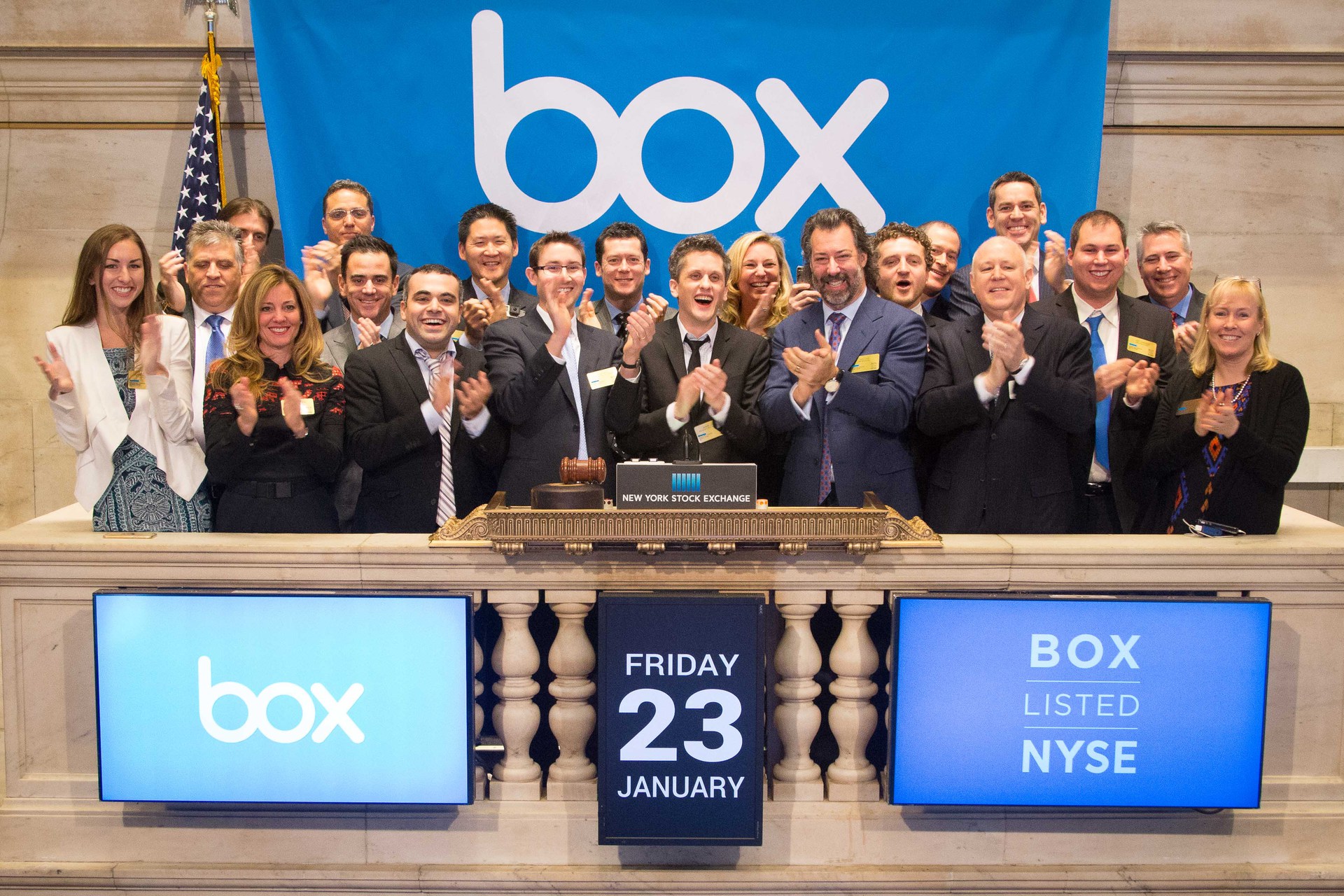What does the IPO Box tell us?

Initial public offering of Box securities has proven challenging from the start. After completing the S1 forms on the Internet, literally, a wave of hysteria rose. It is connected with the fact that last year the majority of technological IPOs did not show the best results in the dynamics of the value of shares, and companies with the main income as subscription services are not very well received in the current IT market, since user income is not much exceeds the cost of its acquisition.
So why did what happened last Friday, January 23, the IPO of Box service is more good news than bad?
Firstly, many analysts noted this in advance, if the IPO Box would be “successful”, and it was exactly as we can say, a week later from this event, many will reconsider their attitude to such services, in particular, and the initial public offering on NASDAQ and NYSE by other IT companies this year, overall.
As Box founder Founder Aaron Levy himself noted on his Twitter, technological IPOs are strange because they revolve around the uncertain expectations of an indefinite group of people: “If your stock rises, then you leave money on the table. If they fall you fail investors. If the trend is lateral, then you are just boring. ”
Box poured 12.5 million shares into the market on an initial offer of $ 14 each, hoping to raise $ 175 million with a total business valuation of $ 1.67 billion. At the same time, the initial price range of the placement proposed by the underwriting banks (these are financial institutions that help in the initial placement and all the conventions associated with this, as a rule, are the largest investment banks in the USA), from $ 11 to $ 13 per share - in this sense Box played even a little riskier than originally intended. The risk has paid off .
Immediately after the opening of trading on Friday (all beginners hit the bell seconds before the opening of trading on the site, immediately giving their papers to the almighty hands of the market), the price of a single share rose to $ 20 and even today, after yesterday's correction of US indices and profit taking on positive news from the IT market, one Box security costs around the same $ 20.
Of course, one week is not an indicator, and you need to look at what the dynamics of the value of the shares will be over long periods of time: a month, a quarter and, finally, for a year. But the market, as it always happens, already appreciated the placement of Box in the future and the consensus is clear - it turned out pretty well. For a company that has existed in a non-public form for about a decade, and very carefully moved to the exchange platform, the results are good. This will also spur other companies this year to attract not closed rounds of investment, but to enter the public and open market, which will determine their future fate.
Of course, in no case should one overlook the fact that the Box is extremely aggressive in a competitive field, and it's not even Dropbox. More precisely, it is also the matter, but last but not least, and he shares the same risks with Box: the presence on the market of Google, Amazon and Microsoft, each of which offers similar services, but at the same time can afford dumping on a much larger basis users.
This is just one of the reasons that investors showed dissatisfaction with Box last Friday: huge spending on PR and marketing (I’ll say from my own experience - at the November WebSummit in Dublin and the March SXSW in Austin, Texas, the company leased large exhibition space) , the lack of an answer to the question related to profitability - the answer to it from the creators of the service still sounds voluminous: "This is a big market." What does it mean? What can you work without profit? It is unlikely that investors will appreciate this in the long run. On the other hand, the experience of social services shows that you can exist on borrowed funds and not think about tight monetization and the profitable side of the project for a long time, as happens with Twitter, Instagram and Snapchat. But anyway,
Otherwise, taking into account the excellent results of the majority of IT companies for the first fiscal quarter of 2015, which always serves as an indicator of status and a guide for future placements, one can expect some more extremely interesting initial placements from other companies, which we are already good at know: Uber, Airbnb, Dropbox, etc. It will not be boring.
